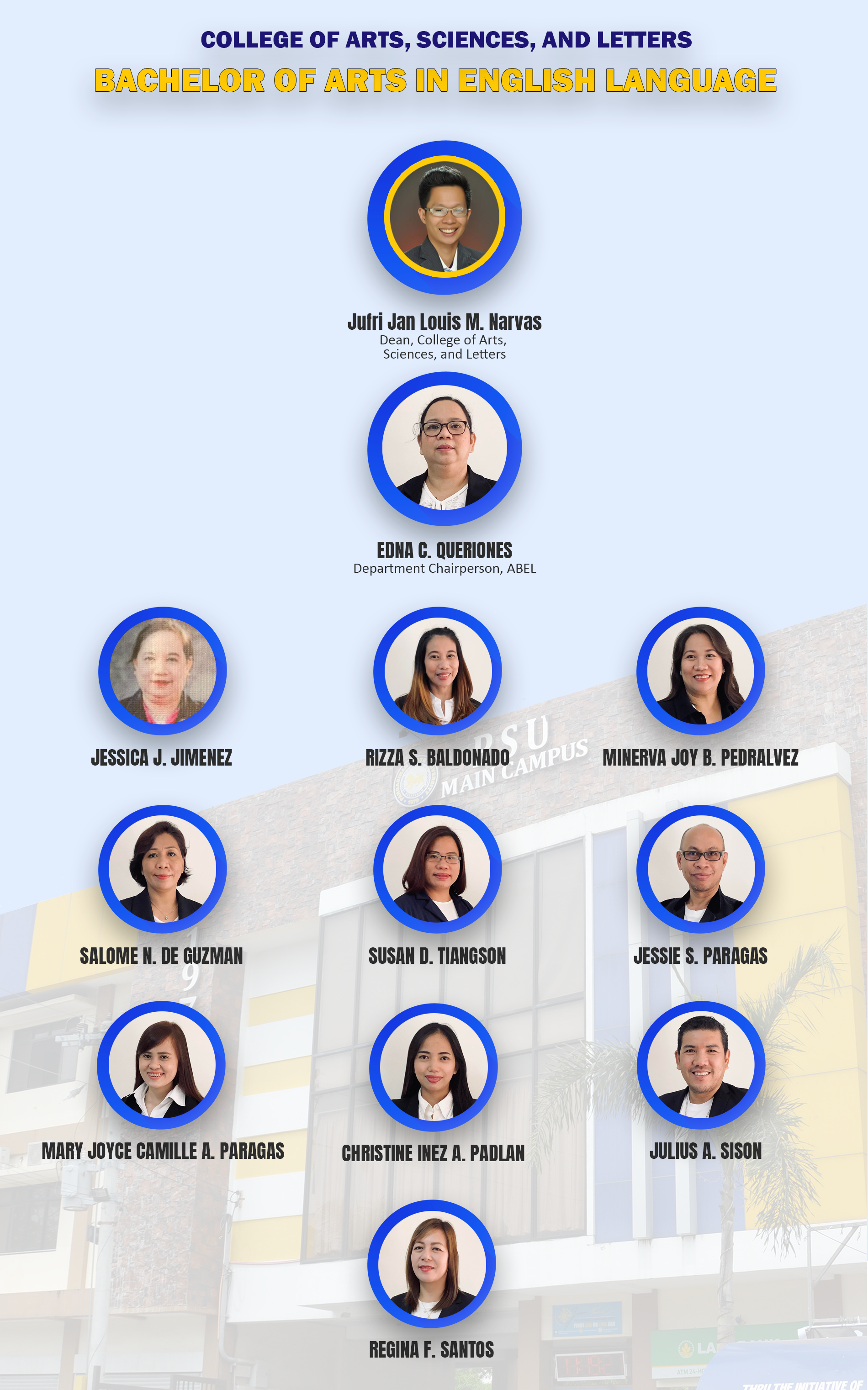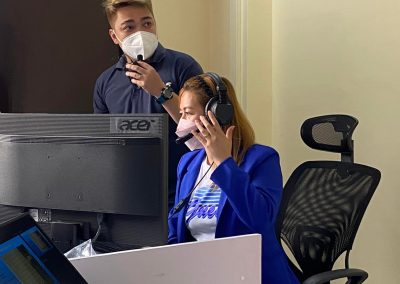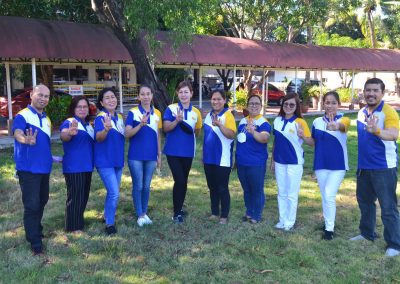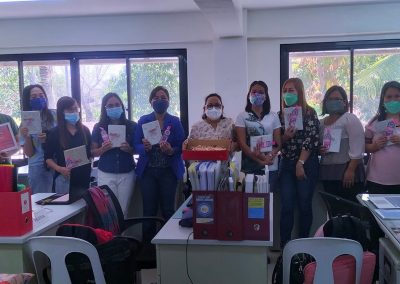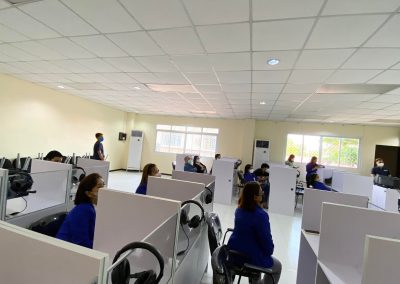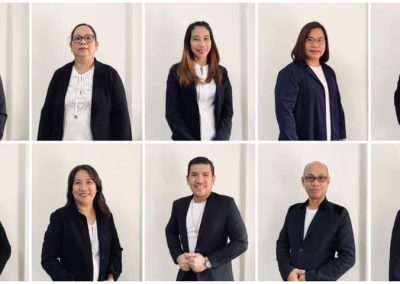
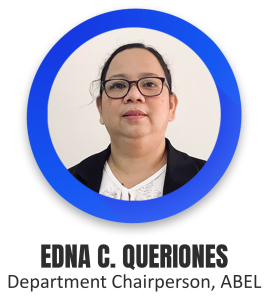
Welcome to ABEL Department!
Bachelor of Arts in English Language, takes you where you deserve to be…
The strength of the core and the wisdom of the heart are manifested in all the accreditation journey which the ABEL program have been through.
“The establishment of the AB English Language Program is the establishment of in-depth understanding of the Arts and Humanities through Communication, Languages, Literature, and Culture. The faculty members, with the entire PSU academic community, are continuously in service to pass on the light of erudition and scholarship to future professionals who will become active members of our democratic society.” (MJC Paragas, 2021)
This is the AB English Language Program.
For the Arts. For the Humanities.
We welcome you into this path we are walking through with a proud mind and a humble heart.
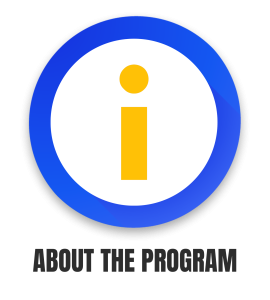
Bachelor of Arts in English Language is a degree program that trains students to handle complexities of texts and discourse to exhibit critical intelligence and creativity that are of value in a wide range of professions; use English language appropriately in the Philippines, ASEAN, and global contexts; be competent in the different areas of linguistics such as phonemics and phonology, morphology and syntax, and semantics and Applied Linguistics such as introduction to lexicography translation, pragmatics, discourse analysis and language teaching; be well-equipped with intercultural and ethical principles in teaching English in the higher education, document Philippine languages for deeper appreciation and preservation of language.
EMPLOYMENT OPPORTUNITIES
- Application Developer
- Database Administrator
- Digital Animator
- Information Security Administrator
- Multimedia Technologist
- Network Administrator
- Network Engineer
- Systems Analyst
- Test Engineer
- Web Administrator/ Web Master
- Web Developer
|
COMMON TO THE DISCIPLINE |
SPECIFIC TO A SUB DISCIPLINE AND A MAJOR |
|
Apply analytical and interpretative skills in the study of texts |
Articulate a comprehensive and contextualized view of the English language system and development |
|
Identify multi-perspectives and interrelations among texts and contexts |
Communicate in English (both oral and written) fluently, accurately, and creatively in diverse social, cultural, academic and professional settings |
|
Demonstrate research skills specific to the sub-disciplines in the humanities |
Participate effectively in oral communication situations where language systems (phonological, morphological, syntactic, semantic) vary |
|
Recognize the need for and demonstrate the ability for lifelong learning |
Produce well-written texts for various academic and professional purposes |
|
Discuss and/or create artistic forms |
Facilitate English Language learning in diverse social, cultural, academic, and professional settings |
|
Appraise the role of humanistic education in the formation of the human being and society |
|
|
Use appropriate theories and methodologies critically and creatively |
|
|
Program Outcomes |
|
Articulate a comprehensive and contextualized view of the English language system and development (PO 19)
Display, socially and environmentally responsive organizational culture, which ensures higher productivity among the university constituents and elevate the welfare of the multi-sectoral communities (PO 5)
Facilitate English language learning in diverse social, cultural, academic, and professional settings (PO 21)
Preserve and promote “Filipino historical and cultural heritage” (PO 11)
Work effectively and independently in multi-disciplinary and multi-cultural teams (PO 9) |
|
Demonstrate through institutional mechanisms, system, policies, and processes which are reflective of transparency, equity, participatory decision making, and accountability (PO 1)
Act in recognition of professional, social, and ethical responsibility (PO 10)
Apply analytical and interpretive skills in the study of texts (PO 14)
Use appropriate theories and methodologies critically and creatively (PO 17) |
|
Effectively communicate orally and in writing using both Mother Tongue and English and Filipino (PO 8)
Communicate in English (both oral and written) fluently, accurately and creatively in diverse social, cultural, academic and professional settings (PO 20)
|
|
Set challenging goals and tasks with determination and sense of urgency which provide continuous improvement and producing quality outputs leading to inclusive growth. (PO 3)
Engage in relevant, comprehensive, and sustainable development initiatives through multiple perspectives in decisions and actions that build personal and professional credibility and integrity (PO 2)
Articulate and discuss the latest development in the specific field of practice (PO 7)
Facilitate English language learning in diverse social, cultural, academic, and professional settings (PO 21) |
|
Participate effectively in oral communication situations where language systems (phonological, morphological, syntactic, semantic) vary (PO 22) |
|
Produce well-written texts for various academic and professional purposes (PO 23)
|
|
Exhibit life-long learning and global competence proficiency in communication skills, inter/interpersonal skills, entrepreneurial skills, innovative mindset, research and production initiatives and capability in meeting industry requirements of local, ASEAN and international human capital market through relevant and comprehensive programs (PO 4)
Contribute to the generation of new knowledge by participating in various research and development projects (PO 24)
Demonstrate research skills specific to the sub-disciplines in the humanities (PO 16) |
|
Discuss and/or create artistic forms (PO 15)
Use appropriate theories and methodologies critically and creatively (PO 17)
Identify multi-perspectives and interrelations among texts and contexts (PO 13) |
|
Practice spiritual values and morally upright behavior which promote and inspire greater harmony to project a credible public image. (PO 6)
Appraise the role of humanistic education in the formation of the human being and society (PO 18)
Recognize the need for and demonstrate the ability for lifelong learning (PO 12) |
Organizational Chart

